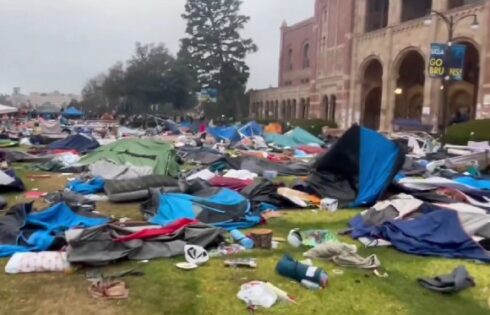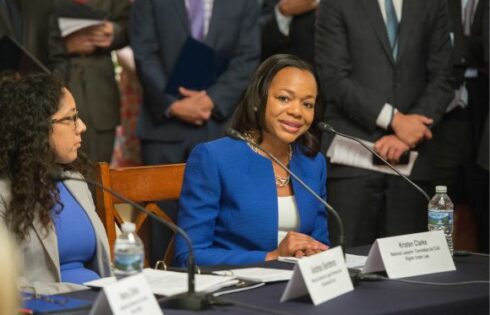
Pima Community College in Arizona has had a rough few years.
Its accreditor was on the brink of yanking Pima’s accreditation because of “poor morale, corrupt procurement practices and failure to investigate sexual harassment claims,” the Arizona Daily Star reports. (It has another year to prove it meets accreditation standards after slight improvement.)
Tired of the negative publicity, Pima has decided to shoot itself in the foot.
Its month-old “guidelines for interacting with news media” got leaked to the Daily Star, and it basically holds a gun to the head of anyone outside of Marketing and Communications who might field a media request.
The policy boils down to 1) don’t tell the media anything 2) direct them to our PR 3) we’ll coach you on how to convey the message we want 4) one of our handlers will join you for the interview so you don’t go off-message.
Oppressive top-down PR always comes couched in fluffy BS, though, so the policy is full of positive language like “open and responsive,” “quickly and helpfully,” and (combining the two) “open and helpful.”
The policy shows its hand when it tells employees the purpose of any interview is to “present the College in the best light.” A college in as much trouble as Pima is probably full of people who would talk to the media for other reasons.
If Pima had come out and said it wants to control all messaging because it doesn’t like free-thinking employees, that’s one thing.
But the public, which funds the school, only learned about the directive from a leak, and Pima PR is now spinning like a centrifuge to the Daily Star about the policy’s purpose. According to Libby Howell, PCC’s executive director for media:
[The rules] are intended to ensure reporters get “timely, accurate, relevant information.
“Often rank-and-file employees do not have all the information or context about a given subject,” Howell said in an email interview. As well, she said, “an employee outside of media relations might not understand the types of deadlines that media work under.”
Right, that’s what they’re intended for. No one in journalism buys this explanation:
“It’s really a form of censorship that prevents candid information from reaching the public,” said David Cuillier, head of the University of Arizona’s journalism school and a past president of the Society of Professional Journalists, which has nearly 10,000 members nationwide.
I’ve dealt with PR folks going back to the college paper. They are often helpful, friendly and timely – as Pima portrays its own PR – although what they tell you typically has all the spontaneity of a politician’s stump speech. (The best interviews in my experience are with startup executives before they hire PR.)
Tough, specific questions from reporters tend to draw evasive, redirecting responses from PR folks. They don’t want the public to hear the information most relevant to their lives – they want to put out their own message through a shrinking, increasingly outwitted, self-defeating media.
As more colleges bust out these top-down PR regimes, maybe it’s time for their employees to start using anonymous forums like Yik Yak to get out the straight dope.
It exposed environmentalist propaganda masquerading as a mandatory class at Eastern Michigan University, after all.
h/t Foundation for Individual Rights in Education
Like The College Fix on Facebook / Follow us on Twitter
IMAGE: Shutterstock






Please join the conversation about our stories on Facebook, Twitter, Instagram, Reddit, MeWe, Rumble, Gab, Minds and Gettr.